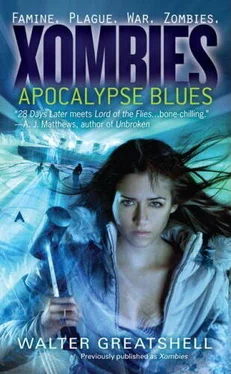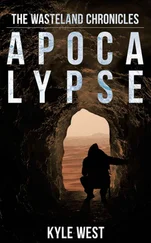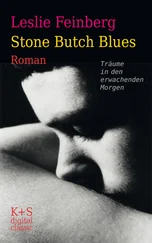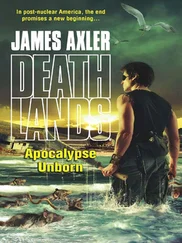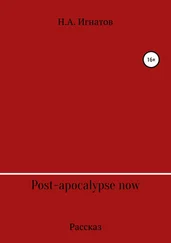Walter Greatshell - Apocalypse blues
Здесь есть возможность читать онлайн «Walter Greatshell - Apocalypse blues» весь текст электронной книги совершенно бесплатно (целиком полную версию без сокращений). В некоторых случаях можно слушать аудио, скачать через торрент в формате fb2 и присутствует краткое содержание. Жанр: Фэнтези, Триллер, на английском языке. Описание произведения, (предисловие) а так же отзывы посетителей доступны на портале библиотеки ЛибКат.
- Название:Apocalypse blues
- Автор:
- Жанр:
- Год:неизвестен
- ISBN:нет данных
- Рейтинг книги:3 / 5. Голосов: 1
-
Избранное:Добавить в избранное
- Отзывы:
-
Ваша оценка:
- 60
- 1
- 2
- 3
- 4
- 5
Apocalypse blues: краткое содержание, описание и аннотация
Предлагаем к чтению аннотацию, описание, краткое содержание или предисловие (зависит от того, что написал сам автор книги «Apocalypse blues»). Если вы не нашли необходимую информацию о книге — напишите в комментариях, мы постараемся отыскать её.
Apocalypse blues — читать онлайн бесплатно полную книгу (весь текст) целиком
Ниже представлен текст книги, разбитый по страницам. Система сохранения места последней прочитанной страницы, позволяет с удобством читать онлайн бесплатно книгу «Apocalypse blues», без необходимости каждый раз заново искать на чём Вы остановились. Поставьте закладку, и сможете в любой момент перейти на страницу, на которой закончили чтение.
Интервал:
Закладка:
Walter Greatshell
Apocalypse blues
CHAPTER ONE
My mother and I missed the news about Agent X because we spent most of that January cooped up in a beach bungalow outside Jerusalem, Rhode Island. Prior to that we had been living in Providence, stalking an elderly man Mum had tracked all the way from Anaheim, California-a man she contended was my father. I found her crusade embarrassing and pointless: If she had been foolish enough to get knocked up by an old goat who ran off the first chance he got, it was more an expression of her character than his. Having lived with her for seventeen years, I knew all too well what a pain in the ass she was. The guy had my sympathy.
When we began leafleting his Pawtucket neighborhood, the codger spooked and fled to his summer cottage by the sea.
"You can't get away from me that easily," Mum muttered nefariously, late into the night. "Oh no, buster. If that's what you think, you got another think coming. Yes indeedy." We had to pack up and leave our little Gano Street apartment during the wee hours of the morning, a drill I was quite familiar with after a lifetime of covert maneuvers.
"Isn't this fun?" Mum said breathlessly as we loaded the sputtering Corolla. Her eyes were bright and wild. It was cold.
"Oh, sure," I said. "What am I supposed to do with my bike?" I had just gotten it for Christmas-a new Huffy.
"Just leave it chained under the stairs, honey. We'll get it later."
That was the thing about her: She knew we would never set foot within a mile of this place again, not with all the back rent and utility bills we owed. Caches of our abandoned pets and possessions stretched from coast to coast, and she acted as if someday we would follow it all home like a trail of bread crumbs. Did she even realize we were butting up against the far side of North America? The only place left to run was the Atlantic Ocean.
In reply to my grinding contempt, she said, "Come on, sourpuss! It's an adventure! Show a little spirit!"
It wasn't hard to find off-season rentals in summer resorts. Owners of such properties were usually so happy to have winter tenants that they made no bones about leases, first and last, background, or credit histories. Add to that the discount rates, few nosy neighbors, and attractive, out-of-the-way locations that tended to discourage process servers, and you understand why such accommodations were a staple of ours. Poor old Mr. Fred Cowper had no idea that by retreating to the seaside, he'd all but put out the welcome mat.
Mum soon had us in a treeless village of white clapboard cottages strewn like apple crates across a grassy common. Bare clotheslines and backyard LPG tanks made up the view. It looked like a mining camp during the Gold Rush, or at least the abandoned remains of one. The sea wasn't exactly at our doorstep, but you could smell rotten eggs when the tide went out, and to me that meant clams, oysters, and other littoral delights, of which I was an avid hunter ever since reading Stalking the Blue-Eyed Scallop, by Euell Gibbons. (Over the years, I had practically memorized the book, and still felt a guilty twinge every time I read the words PROPERTY OF OLIVER LAFARGE PUBLIC LIBRARY.) Aside from a few seldom-seen retirees like Cowper, and a house down the road occupied by hard-partying biker types, the place was a ghost town.
We didn't have a TV or a radio, not even in our car, because my mother couldn't bear commercials of any kind, and most popular music disturbed her chi. Instead, we relied on an old Capehart record player and her collection of movie-soundtrack albums, so that my childhood memories are all scored by Henry Mancini. Mum painted watercolor still lifes, and I wrote poetry in the style of Emily Dickinson, whom I identified with to a nearly pathological degree. Consequently, by the time we heard what was going on, it was already old news. Here is what happened:
It was the first week of the month, and Mum had gone to our P.O. box in Providence to retrieve and cash the interest check from my trust fund. This was money left for my care by her father, and it galled her no end that she had no control over the principal, which would be mine when I turned eighteen. For a period of several years she actually contested his will, an Ahab-like quest that almost drove her mad. Mum's ever-changing, grandiose plans for that money made me glad she couldn't get at it, though the shopping binge would have been fun. As it was, we had just enough to live on three weeks out of the month and ran up debts in the fourth.
On that particular fourth week, we had been subsisting on pancake mix, basmati rice, and whatever I could forage from the ocean, so I was looking forward to unpacking a carload of groceries and all the magazines we subscribed to. After weeks of picking over old ones, new magazines were like fresh meat. But I knew something was wrong when I didn't hear her get out of the car. The engine stopped, and she just sat there, as if formulating another bogus tale-I knew at once she had blown the money, or been conned out of it. Something. My bird chest constricted, and my eyes swam with tears of frustration: Not again.
But when she finally came in, I could tell it was something else. Something new. There were no groceries, and I was determined to be indignant, but the look on her face gave me a feeling I thought I had long outgrown: childish fright-the fright that only comes from seeing adults fall apart.
Clinging for dear life to my petulance, I demanded, "What happened?"
"Honey?" Her look was dreamy, detached. Unbalanced. "Something weird is going on."
"What? Shut the door, it's freezing in here."
"Lulu…"
I avoided looking at her. "What?" I said. "What's wrong?"
"I couldn't check the mail. Everything's blocked off."
"What do you mean? Why?" I thought she meant there had been road construction or an accident. That was it: She must have seen a terrible accident. Such things had disturbed her before. Once we passed a bad wreck while riding the bus, and she covered her eyes and moaned, "Oh, oh, oh," for long minutes, while the other passengers stared at us, and I tried to reassure her that the body under the bloody sheet was only covered up "to keep the sun off him" and that "I swore I saw him move."
Creepily blank, she said, "There's nobody out there. I couldn't even get to the highway. Traffic was all jammed up."
"I don't get it. There's nobody where?"
"Anywhere."
Growing impatient, I said, "You just said there was a lot of traffic."
"Yes." She looked at me, slowly nodding. I could see that she was vibrating like a scared kitten. As if correcting a preschooler, she said, "The cars are all abandoned, sweetie. They were all just left in the road."
I felt a twinge. "Give me a break," I said, annoyed by my own reaction. "You're just having an anxiety attack."
She seemed to catch her breath and get centered. Focusing on me in the hyperearnest way she knew I disliked, she said, "Lulu, honey, I don't mean to scare you. Dammit, sometimes I forget you're only seventeen. But I promise you I won't let anything happen to you. I know the last couple of years have been difficult, but this is different. This is not a hot flash."
I was completely lost, could only shrug helplessly.
"I stopped at the gas station on Route 1," she said. "There was no one there, but I found this." She set down her big Gua temalan bag and pulled out a Hello Kitty portable radio. "I also found cartons of army rations, MREs-they're in the trunk. All kinds of things were just lying around loose, and I started wandering the street trying to find someone. All I could think was terrorists, you know, maybe a bomb scare or something, and I thought we should know what to do. I couldn't find a soul. Then I got the bright idea to try the radio"-she shook her head, chewing on air for a second-"and, and I thought it was a prank or something. April Fools' Day. Only it's not." Her teeth had started chattering.
Читать дальшеИнтервал:
Закладка:
Похожие книги на «Apocalypse blues»
Представляем Вашему вниманию похожие книги на «Apocalypse blues» списком для выбора. Мы отобрали схожую по названию и смыслу литературу в надежде предоставить читателям больше вариантов отыскать новые, интересные, ещё непрочитанные произведения.
Обсуждение, отзывы о книге «Apocalypse blues» и просто собственные мнения читателей. Оставьте ваши комментарии, напишите, что Вы думаете о произведении, его смысле или главных героях. Укажите что конкретно понравилось, а что нет, и почему Вы так считаете.
